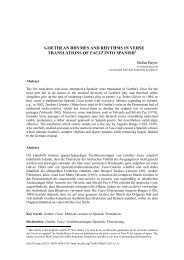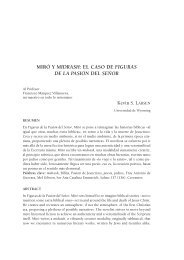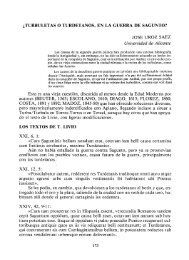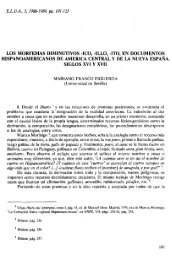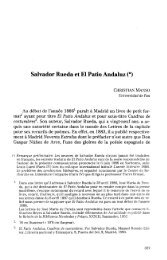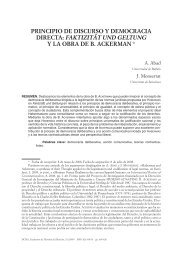Conceptual Metaphors in Taboo-Induced Lexical Variation
Conceptual Metaphors in Taboo-Induced Lexical Variation
Conceptual Metaphors in Taboo-Induced Lexical Variation
Create successful ePaper yourself
Turn your PDF publications into a flip-book with our unique Google optimized e-Paper software.
<strong>Conceptual</strong> <strong>Metaphors</strong> <strong>in</strong> <strong>Taboo</strong>-<strong>Induced</strong> <strong>Lexical</strong> <strong>Variation</strong> 59<br />
TABOO REFERENT<br />
‘reach orgasm’<br />
‘die’<br />
METAPHORICAL<br />
MANIPULATION<br />
<strong>Lexical</strong>ized Semi-lexicalized Creative metaphor<br />
metaphor metaphor<br />
Explicit Conventional Novel<br />
X-phemism X-phemism X-phemism<br />
come shoot arrive <strong>in</strong> Uganda<br />
pass away rest waltz<br />
Figure 1. Metaphor types and X-phemistic categories.<br />
The effect of metaphorical language on taboo topics such as ‘reach orgasm’ and ‘die’ is<br />
the source of three types of X-phemistic substitutes, lexicalized <strong>in</strong> different degrees and<br />
<strong>in</strong>cluded <strong>in</strong> different conceptual networks. In the figure above, the taboos proposed as<br />
examples are verbalized through metaphorical units which show different degrees of<br />
ambiguity and connection with the taboo referent. In what follows I will discuss the<br />
different metaphor types, namely creative, semi-lexicalized and lexicalized, and their<br />
correspond<strong>in</strong>g X-phemistic categories: novel, conventional and explicit.<br />
4.1. Creative metaphors and novel X-phemism<br />
Metaphorical units motivated by creative metaphors activate a novel mean<strong>in</strong>g with respect<br />
to the sense generally accepted for the expression. This is why the identification of these<br />
X-phemistic types with the taboo referent they stand for is not at all obvious. Indeed, the<br />
mean<strong>in</strong>g of novel X-phemisms is only accessible <strong>in</strong> their phraseological and pragmatic<br />
context, where they acquire their X-phemistic power and capacity to refer figuratively to<br />
the taboo referent. On many occasions they even have mean<strong>in</strong>g only to those familiar <strong>in</strong>





